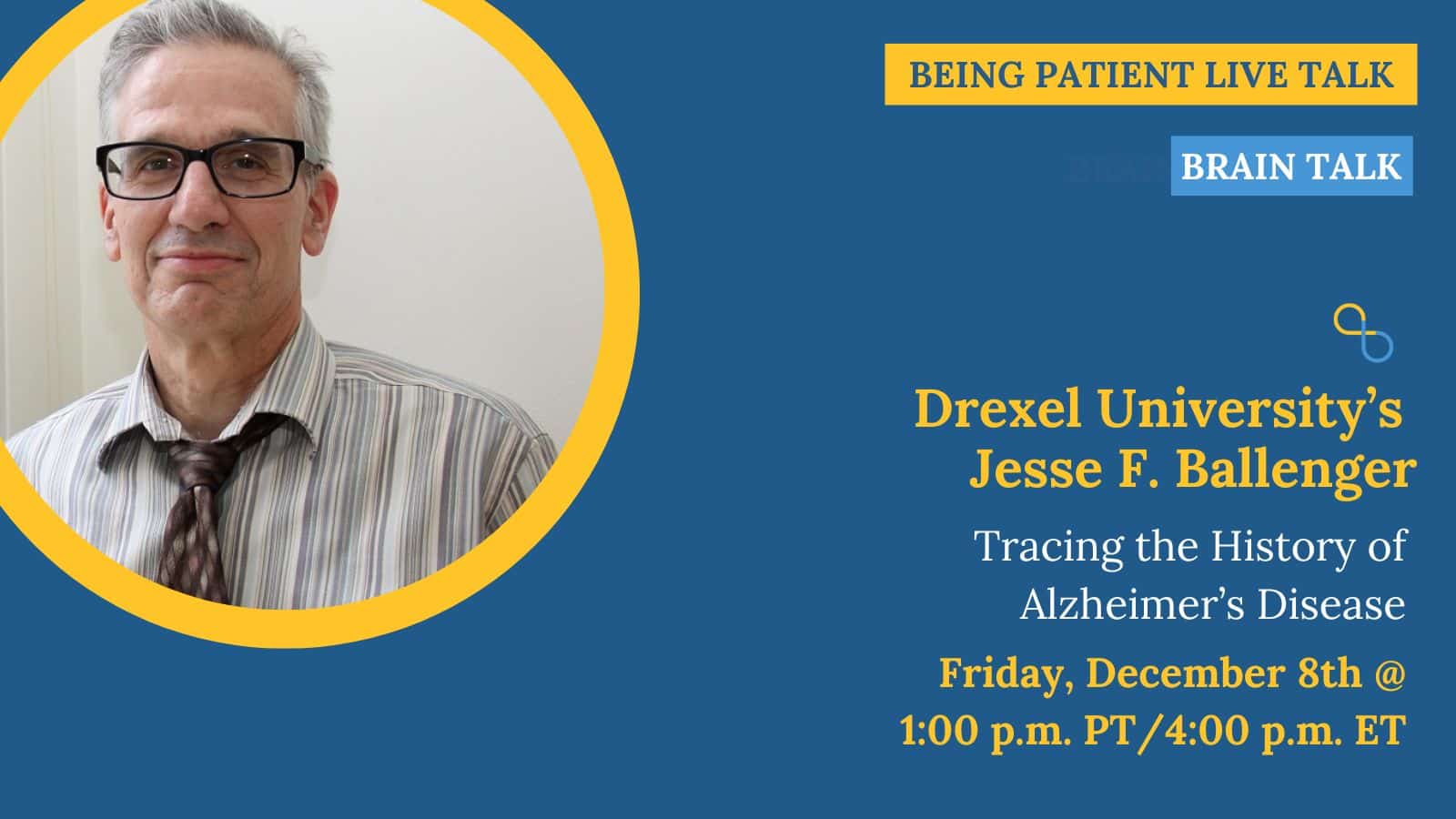Although humans have known for thousands of years that some older people develop memory and cognitive problems, the idea that this was actually a disease — and not a normal part of aging — is less than 100 years old.
Around 2000 BC, records written by Ancient Egyptians documented that some people developed problems with their memory in older age. Around 1,500 years later, the Greek philosopher and scientist Pythagoras stated that people’s cognition would often deteriorate after age 63. Fast forward another 2,000 years to 1608 AD. William Shakespeare famously depicts King Lear as having symptoms consistent with dementia.
While there are plenty of descriptions of dementia throughout history, the idea of Alzheimer’s disease as we know it is a modern concept. It wasn’t until 1910 that the genetic form of the disease which caused memory loss and cognitive decline in families was recognized by name — which it took from a doctor named Alois Alzheimer.
And it would be another couple decades — not until the 1940s, less than 100 years ago — before scientists began to agree that cognitive decline wasn’t just a normal part of aging. Rather, it was dementia, and sometimes, possibly this relatively newly discovered disease: Alzheimer’s disease.
“It’s recognized, it’s written about, but it’s not thought of as something distinguishable from other problems,” historian Jesse Ballenger, a professor at Drexel University who studies the history of dementia, told Being Patient.

1908: The discovery of early-oset Alzheimer’s
The 18th and 19th centuries were an exciting time for biological research. Scientists discovered that problems with individual cells could cause many diseases like diabetes.
To move psychiatry into this new paradigm of medicine, Alois Alzheimer and his scientific mentor Emil Kraeplin wanted to find a brain disease also caused by specific cellular damage or pathology. “They were not interested in it as a disease afflicting old age. They were trying to put psychiatry on a sounder, scientific basis,” Ballenger said. Alzheimer and Kraeplin thought looking at early-onset dementia could provide them with proof.
In 1908, Alzheimer published a seminal paper defining this early-onset form of dementia detailing the case of a 50-year-old woman who developed paranoid, progressive sleep, memory problems, aggression, and confusion. These symptoms worsened for five years until her death. Upon her death, an autopsy of the brain revealed characteristic beta-amyloid plaques and tau tangles. He proposed calling this disease Alzheimer’s. Two years later, this Alzheimer’s disease was included in Kraeplin’s textbook on psychiatric illness.
“They characterized the genetic form of Alzheimer’s, which was a clear clinical condition with a specific brain pathology — plaques and tangles,” Ballenger said. “They still didn’t think that Alzheimer’s that occurred later in life, which constitutes most cases, was the same disease they looked at, or even a disease at all.”
1930s to 1960s: Alzheimer’s in old age as a disease
Throughout most of the 20th century, most cases of Alzheimer’s disease, which occurred later in life, were not considered a disease. But there was a problem.
“The state mental hospitals start to become the primary location where people with dementia go when they can’t be cared for at home,” Bellenger said. “Normally, people were sent to mental health hospitals to get better, but people with dementia didn’t actually get better, so this caused a crisis with more and more people [living] at state mental hospitals.”
In the United States, a group of prominent psychiatrists led by David Rothschild took notice. He was aware of the work done by Alzheimer and Kraeplin, as well as the beta-amyloid plaques and tau tangles that accumulated in the brain. But some healthy people who died also had plaques and tangles. “There’s a reason why some people are able to withstand a degree of brain pathology,” Ballenger said. “His idea is, it’s probably psychosocial support.”
This led to the formation of gerontology, the study of social, cultural, psychological, cognitive, and biological aspects of aging. Ballenger explained that this led to the idea of the psychosocial model of dementia. “It becomes an argument for investing in a network of old-age programs and policies, social supports, and increasing pensions.”
The burgeoning field of gerontology set the stage for more investment and research into dementia and, eventually, the first modern definition of Alzheimer’s disease.
1984 – present day: Diagnosing Alzheimer’s disease
In 1984, neurologists developed the Pittsburgh criteria — the first modern definition of Alzheimer’s — which recognized early onset Alzheimer’s and the more common later onset form of the disease as two sides of the same spectrum.
The one way to diagnose Alzheimer’s for certain required an autopsy or biopsy of the brain to confirm the presence of amyloid plaques and tangles, along with clinical symptoms of the disease. People with progressive cognitive impairments without other diseases were considered to have probable Alzheimer’s disease.
In the decades since the 1980s, scientists further unraveled the molecular basis of Alzheimer’s disease. Methods were developed to measure beta-amyloid plaques and tau levels in the cerebrospinal fluid and through brain imaging.
In 2011, this led to an update to the guidelines for diagnosing dementia — with these biomarkers making doctors more confident that people with progressive memory and cognitive decline had Alzheimer’s. It also allowed clinicians to distinguish between Alzheimer’s and non-Alzheimer’s dementia. People with these biomarkers starting to experience cognitive decline but hadn’t reached the severity of early-stage Alzheimer’s were defined as having mild cognitive impairment. In 2018, these guidelines were again updated to include more disease biomarkers.
The future: Redefining Alzheimer’s
Today, with blood tests for beta-amyloid and tau reaching the clinic, it has become easier and cheaper to test for biomarkers of Alzheimer’s disease. In 2023, clinicians once again convened to update the guidelines for diagnosing Alzheimer’s — proposing the controversial idea that Alzheimer’s could be diagnosed before any symptoms based solely on these blood tests.
“Instead of calling Alzheimer’s a disease where you forget your glasses and keys and repeat yourself, now we’re defining it by inflammation, amyloid, and tau,” Dr. Marwan Sabbagh, a clinician and professor of neurology at the Barrow Neurological Institute, told Being Patient. “It’s a profound change to our field.”
Another important difference, Sabbagh noted: “We think of it as an elderly disease when, in fact, it is probably a middle-age or lifelong disease.”
These new diagnostic guidelines for Alzheimer’s disease are still being developed and discussed, and it isn’t clear exactly how they’ll shape up — nor what a diagnosis of “presymptomatic Alzheimer’s” might offer for patients. While there are new treatments that appear to slow the disease a little, there is still no way to stop Alzheimer’s from progressing no matter how early it is diagnosed.





I was told I had MCI 10 years ago with small vessel echemic disease but don’t worry about. A neurologist and a neurophysiologist told me this. This summer through a spinal tap I was diagnosed with moderate stage Alzheimer’s. This story here has really touched a nerve for me.
Why aren’t you talking about a cure for dementia including Alzheimer’s? I’m hearing about the work Dale Bresden has been doing including the reversal of Alzheimer’s. They are even making great headway with Parkinson’s.
Hi Donald, There is currently no cure for ALzheimer’s and most of science is looking towards prevention. Lifestyle interventions can make a big difference.
https://www.beingpatient.com/12-ways-to-prevent-dementia/
Please tell me how my husband can be tested for Alzheimers. He’s been diagnosed by a psychotherapist buhow can he get the blood tests. This is all so wonderful.
Hi Belinda, Ask you doctor if he or she has access to the blood tests. Not all practices are using them because they are new to market but any prescriber should be able to access them.
Hi Belinda, Ask you doctor if he or she has access to the blood tests. Not all practices are using them because they are new to market but any prescriber should be able to access them.
Hi Belinda,
Cognitive testing is essential to determine if someone has dementia. Blood tests will only reveal if there are elevated levels of beta amyloid and Tau protein. These are hallmarks of Alzheimer’s disease, but AD comprises only a portion of those with dementia and there are many people with elevated blood markers who are cognitively normal. Your husband also needs an MRI and a series of blood tests to rule out other causes. Also, emotional factors, especially depression, will masquerade as dementia. Go back to the PCP and ask for referrals, please.
As a person who comes from a family who’s mother had Dementia in her late eighties, caused me to seek this whole medial concern. Your extensive information in this medical field was in formative and provided me with information that I will look into. Many thanks and support your work.
Thanks for writing to us John and please let us know if you are looking for specific answers to any questions you may have.
Thanks for writing to us John and please let us know if you are looking for specific answers to any questions you may have.
My Dad and his two sisters died with Dementia. Yale Medical Center has a massive research program studying Alzheimer’s and dementia. It is headed up by Dr Christopher van Dyck. I am a 76 year old female. I volunteered to be tested via a PET scan. In 2017 I did not qualify to be eligible for a clinical trial.
In 2023 I again volunteered for a clinical trial and through a PET scan I was found to have enough amyloids to qualify for an “open label” clinical trial of Donanemab. After 6 months of infusions, once a month, my PET scan came back negative. Infusions were stopped. However my daughter and I are still being interviewed once a year to evaluate if there have been any changes in my cognition.
Two drugs Lecanemab and Donanemab, which is the one I received, have been “fast tracked” for FDA approval.
It’s encouraging to hear you have benefited from an Alzheimer’s clinical trial. Ongoing studies help advance research and treatments. Wishing you continued success in keeping amyloids at bay!